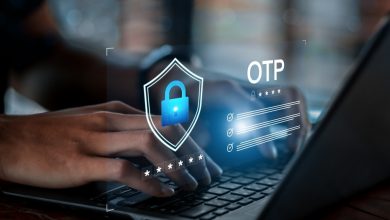Companies worldwide are investing heavily in artificial intelligence (AI) because it has myriad business applications that give them a competitive edge. The average person may not realize just how ubiquitous AI has become – it powers digital voice assistants, social media, streaming services, and smartphone navigation apps, for example.
With recent advancements in tech, organizations can leverage AI to bolster the strength of their cybersecurity efforts and maintain compliance with various data protection laws and applicable regulations.
The Importance of Complying With Data Privacy and Cybersecurity Regulations
There are many reasons why businesses should prioritize compliance in terms of cybersecurity. While some organizations focus on meeting the minimum compliance requirements, working to exceed them can offer several benefits, including:
● Reduces potential legal problems
● Positions businesses to handle growth more effectively
● Improves safety, security, and operations
● Better public relations
● Strengthens employee retention
Modern companies work with massive amounts of data. Consider financial services companies, health care organizations, or government agencies. All of these groups work with sensitive data, including one or more types, such as restricted, confidential, and public information.
Restricted information is the most sensitive type and must be protected at all times. Next, confidential information is considered moderately sensitive and presents some risk. On the other hand, public information typically presents little or no risk to a company if it’s accessed.
Ultimately, companies should identify and categorize data according to these sensitivity levels.
Any employees that manage this data must use proper safeguards, such as storing data securely, implementing access control measures, using the best cybersecurity practices, and following compliance guidelines. In some cases, organizations are required to meet certain compliance standards. If they fail, they must rectify the issue and conduct another assessment.
How Businesses Can Use AI to Improve Security Compliance
On paper, it’s obvious that businesses should comply with applicable federal, state, and international laws. Some well-known regulations include the Health Insurance Portability and Accountability Act of 1996 (HIPAA), the California Consumer Privacy Act (CCPA), and the E.U.’s General Data Protection Regulation (GDPR).
Another example is China’s Personal Information Protection Law (PIPL), which has received criticism because it does not prevent the government from accessing user data. These regulations are becoming increasingly common globally. The United States has yet to pass a comprehensive federal data protection law, but it could happen in the future.
More recently, the U.S. Department of Defense is instituting a rule that could impact U.S. government contractors. Soon, the DoD will require members of its supply chain to earn the Cybersecurity Maturity Model Certification (CMMC).
CMMC is an upcoming regulation that improves cybersecurity practices to strengthen the DoD’s cybersecurity posture. It also protects the Defense Industrial Base (DIB) and reduces overall exposure. The final rule that enacts CMMC is expected to be published sometime in late 2023 or early 2024, so companies must prepare now.
So, with compliance requirements becoming increasingly important in business, how can companies use AI-powered solutions to maintain compliance? Let’s discuss this below.
1. Streamlines Compliance Alerts
At the core of any AI is its ability to capture, extract, and analyze critical data. In today’s data-oriented regulatory compliance environment, compliance officers can leverage the power of AI to monitor vital compliance activities and alert them to specific updates and events.
For example, financial institutions deal with high volumes of false positives produced by their traditional, rule-based compliance systems. When this happens, it can be challenging for the institution to comply with the “Know Your Customer” (KYC) regulations. Compliance officers typically review these false positives manually – but with AI, that process is automated, dramatically improving efficiency and minimizing human error.
2. Automates Workflows
As stated above, AI helps automate workflows in several ways. Cybersecurity compliance management requires manual processing that often causes operational inefficiencies. AI is a viable solution for automating compliance officers’ workflows, allowing them to use their time for more meaningful tasks while still achieving compliance oversight, coordination, and collaboration.
A cybersecurity compliance regulation system alerts people of tasks they must complete, offers a higher level of visibility into compliance operations, and tracks real-time communications between multiple teams within an organization.
3. Augments Security Shortcomings
Cyberattacks must be taken seriously regardless of the size of a business or what industry they’re in – whether it’s health care, banking, retail, or manufacturing. Hackers use sophisticated methods to execute attacks; there are recent reports of cybercriminals weaponizing AI to launch automated attacks.
However, because AI has numerous applications, compliance officers and IT professionals can leverage it to fend off attacks. In terms of cybersecurity, AI can:
● Provide curated risk analysis
● Remediate cyber threats
● Reduces the amount of time IT departments spend on decision-making and can also improve decision-making
AI tech can also identify, respond, and send alerts to IT teams if an attack occurs. In terms of compliance, AI can also assist businesses in reducing the chances of facing compliance fines or breaches.
4. Identifies Regulatory Changes and Updates
Because the security compliance environment is ever-changing and new privacy regulations are emerging, compliance officers have their work cut out for them. They must stay abreast of updated terms regarding rules, identify and prepare for new laws, and update C-suite executives, IT pros, and other employees on these changes.
One branch of AI, natural language processing (NLP), is becoming more widely used in compliance departments. NLP algorithms can process extensive regulation documents, including crucial changes a company needs to be aware of. NLP can monitor transactions, screen documents with sensitive information, and meet KYC compliance requirements.
The Valuable Role of AI in Security Compliance
Based on the industry they serve, many businesses are responsible for meeting compliance requirements when it comes to data and cybersecurity. Cybercrimes have become increasingly prevalent, as attacks are more frequent, intense, sophisticated, and costly. Leveraging AI to improve compliance management processes is imperative in today’s business environment.



